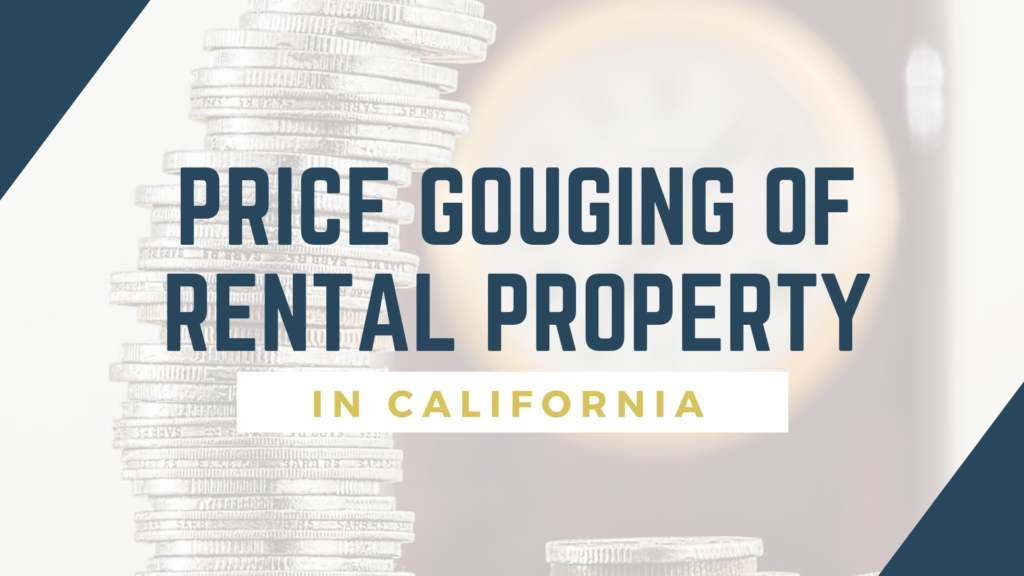
The Golden State is on fire, both figuratively and literally speaking. Rising costs across the board are the topic of conversation. Increasing cost of consumer goods and services, transportation and housing is squeezing people. Some are leaving California all together for less expensive states. Natural disasters such as the recent fires in Redding, Lake County, Mendocino County and near Yosemite National Park have caused damage in millions of dollars and destroyed thousands of homes. At the time of writing this article more than 900 homes had burned in Redding. Fires near Yosemite National Park and Lake County were only 20% contained. Last year, state of emergency was declared after the Tubbs Fire devastated Napa, Sonoma and Solano Counties. It only seems natural that Governor Brown might declare a state of emergency this year again.After the October 2017 Tubbs Fire, price gouging became prevalent as some tried to take advantage of those affected. Some unscrupulous individuals welcomed a bidding war for their available rentals. Some even evicted existing tenants in favor of renting at much higher prices to the competing insurance companies that were willing to pay two to four times above market rate. What some of these people didn’t know is that price gouging is illegal especially after declaration of state of emergency. District attorneys in Sonoma and Santa Rosa brought charges against landlords for price gouging as early as December 2017 when complaints began to pour in.
According to the California State Department of Justice website, price gouging denotes sellers trying to take unfair advantage of consumers by greatly increasing prices during an emergency or disaster for essential goods and services. Statue of anti-price gouging apply immediately after declaration of state of emergency and it applies to individuals as well as businesses. Generally, the statue applies for 30 to 180 days after declaration of emergency depending on the services needed. Penal Code 396 restricts raising prices to 10%. Many don’t realize the statute does not restrict its protection to only where the emergency is located. The statute intends to prevent price gouging anywhere in the state where there is increased demand for goods and services because of the emergency. Violations are subject to criminal prosecution resulting in one-year imprisonment and/or $10,000 fine.
 It is only natural that demand for housing will grow in our local areas as more people lose their homes to fires and begin to move. Real estate investors with available housing must pay close attention to declaration of state of emergency all over the state to be compliant with the law.
It is only natural that demand for housing will grow in our local areas as more people lose their homes to fires and begin to move. Real estate investors with available housing must pay close attention to declaration of state of emergency all over the state to be compliant with the law.
For more information on this or if you need help managing your rental property, please contact us at New Bridge Management.
